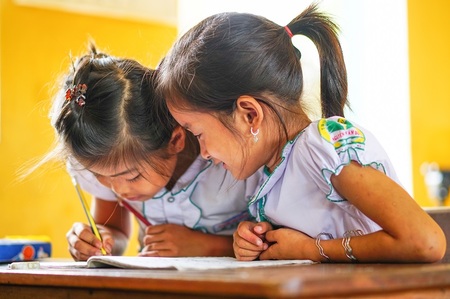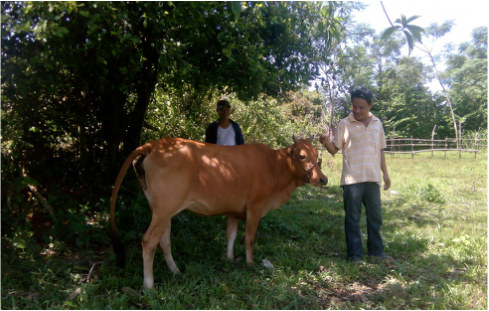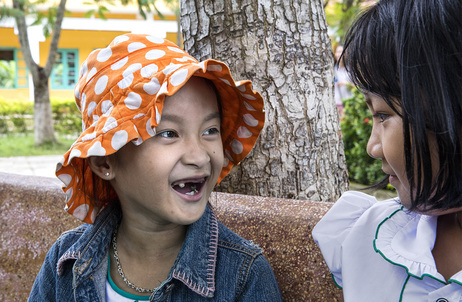HIV Care Saves Lives
HIV has become an increasing problem in Viet Nam. Mothers can pass the infection on to children and the disease is often clinically silent for many years. These families are difficult to locate because HIV has created a significant social stigma in rural Viet Nam.
Families are often shunned and children are unable to attend school. When it is discovered that a child has HIV, other parents don’t want their children in school with them. Because of this stigma, families often move around regularly and do not seek medical care or often don’t seek HIV testing of their children. The majority of the children living with HIV are orphans and are living with their grandparents.
VNHIP has been working with families to help them both with the financial impact of not having a steady income and the associated social stigma by working on community and school education. We support the children to order for them to get medication for their disease and to travel to Ho Chi Minh for treatment when necessary. VNHIP supports 30 children living with HIV in Quang Nam province and Da Nang city.
Goal
Our main purpose is to improve the health and well-being of the children living with HIV in Quang Nam and Da Nang city.
Families are often shunned and children are unable to attend school. When it is discovered that a child has HIV, other parents don’t want their children in school with them. Because of this stigma, families often move around regularly and do not seek medical care or often don’t seek HIV testing of their children. The majority of the children living with HIV are orphans and are living with their grandparents.
VNHIP has been working with families to help them both with the financial impact of not having a steady income and the associated social stigma by working on community and school education. We support the children to order for them to get medication for their disease and to travel to Ho Chi Minh for treatment when necessary. VNHIP supports 30 children living with HIV in Quang Nam province and Da Nang city.
Goal
Our main purpose is to improve the health and well-being of the children living with HIV in Quang Nam and Da Nang city.
Our approach
VNHIP’s project raises public awareness and provides a comprehensive development of the kids, including health, education, life-skill development and livelihood/economical development. We focus on the following four (04) areas:
VNHIP’s project raises public awareness and provides a comprehensive development of the kids, including health, education, life-skill development and livelihood/economical development. We focus on the following four (04) areas:
|
Organize behavior change communication and campaigns on awareness raising and stigma reduction for children living with HIV.
Improve the accessibility of education for the children living with HIV by working with school teachers and parents of other children to increase their acceptance at school and provide the needed financial support (to cover scholarship, books, clothes, bikes, food at school, etc.). VNHIP will organise social events and training to improve the social and life-skills of the children living with HIV
|
Provide grants for basic needs and livelihood improvement (food, clean water, safe house, clothes, hygienic toilet), and loans for income generation forthe families
Work with health services and other organizations to detect HIV early in children at risk, provide health and dental care, improve access to medication, and support children without caregivers to be cared for in the orphanage centers.
|
Highlight Results:
- 300 gifts were given to children infected/affected by HIV/AIDS at social events : Lunar New Year, International Children's Day, Mid-Autumn Festival
- 22 children infected/affected by HIV/AIDS received monthly nutritional support
- 60 children infected/affected by HIV/AIDS received scholarships
- 30 HIV-AIC children improved their life-skills through participation in our training courses
- 6 young people infected with HIV/AIDS received subsidies for vocational /college/ university training
- 66 people with HIV/AIDS Supported for travel costs to receive ARV drugs
- 70 people living with HIV were trained on active treatment after receiving HIV viral load results
- 70 people living with HIV were trained on self-care skills.







